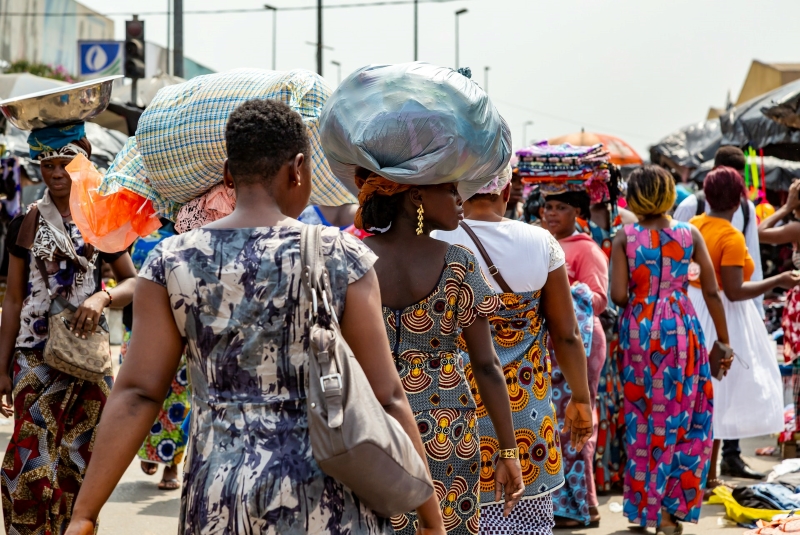Investing in Women to Eradicate Gendered Poverty
 Poverty does not affect everyone equally, regardless of gender. If things continue as they are, more than 340 million women and girls will still be living in extreme poverty by 2030. Gendered poverty, as highlighted by U.N. Women, remains a significant barrier to achieving gender equality and sustainable development globally.
Poverty does not affect everyone equally, regardless of gender. If things continue as they are, more than 340 million women and girls will still be living in extreme poverty by 2030. Gendered poverty, as highlighted by U.N. Women, remains a significant barrier to achieving gender equality and sustainable development globally.
Education and Economic Participation
Gendered poverty manifests in various forms, disproportionately affecting women and girls across the globe. Millions of girls are unable to attend school, especially in conflict-affected areas like Afghanistan. Globally in 2023, up to 129 million girls and young women could have been out of school, with an estimated 110 million projected to remain out of school by 2030, the U.N. Women reports. The fact that 32.1% of young women aged 15 to 24 were not in education, employment, or training (NEET) globally in 2022 concludes that women face systemic exploitation and oppression, impacting their access to education and opportunities.
Unpaid Labor and Wage Gap
For example – in a developing country like India, the disparity in unpaid labor is glaring, with women dedicating an average of 352 minutes daily to domestic chores compared to men’s 51.8 minutes. Despite its seeming insignificance to casual observers, the fact that nearly half of the female population, amidst a 1.3 billion-strong nation, goes unaccounted for in the annual GDP raises significant concerns.
Closing the gender wage gap is not just about fairness; it is also a critical step toward reducing poverty among working women, particularly single mothers. Studies consistently demonstrate that bridging this gap would lead to lower poverty rates for women across all states and contribute to greater economic security for women and their families. Ensuring equal pay for equal work promotes gender equality and uplifts communities, promoting economic resilience.
Impact Through Action
Despite the pressing need, a mere 4% of bilateral aid goes towards gender equality and women’s empowerment. Bridging the gap to achieve gender equality by 2030 requires an estimated annual investment of $360 billion, according to the U.N. Women.
International initiatives are driving tangible change in communities worldwide, amplifying the voices of women and girls and dismantling barriers to their empowerment. Through targeted programs and projects, they are actively working by providing financial resources, enhancing access to economic opportunities, and fostering an enabling environment for their participation in decision-making processes.
Fighting Gendered Poverty
Kazakhstan’s Commissioner for Children’s Rights, Dinara Zakiyeva, remarked on the imperativeness of legislative efforts to protect children’s rights, including bills aimed at combating domestic violence and bullying By providing accessible and affordable childcare options, the project empowers women economically too.
During 2023, Kazakhstan expanded childcare subsidies for both employed and unemployed mothers from 1 to 1.5 years and raised social benefits for individuals with disabilities by 14.5%. This enhanced support mechanism benefited nearly 700,000 parents throughout the year.
In Senegal, Mali and Niger, women are challenging stereotypes and emerging as successful entrepreneurs in the renewable energy sector with support from Plan International. The Economic and Social Development of Women through Renewable Energies in the Sahel (DESFERS) project empowers more than 21,000 women to harness opportunities in the renewable energy field, particularly solar power, to establish various small businesses. By addressing social, economic and cultural inequalities that hinder women’s economic participation, DESFERS aims to create avenues for women’s economic empowerment.
As part of this movement, the Stepping Stone Grassroots Women group, affiliated with the Huairou Commission, is actively addressing gendered poverty by empowering women traders and advocating for changes to protect women’s rights and dignity, the U.N. Women reports. Through their project, 16 female traders have been supported in establishing women-only fishponds, challenging traditional power dynamics and enhancing women’s economic independence. The group seeks to amplify women’s voices, address gender-based violence, and promote gender equality in all spheres of life.
– Malaikah Niyazi
Malaikah is based in Mumbai, India and focuses on Global Health and World News for The Borgen Project.
Photo: Unsplash
